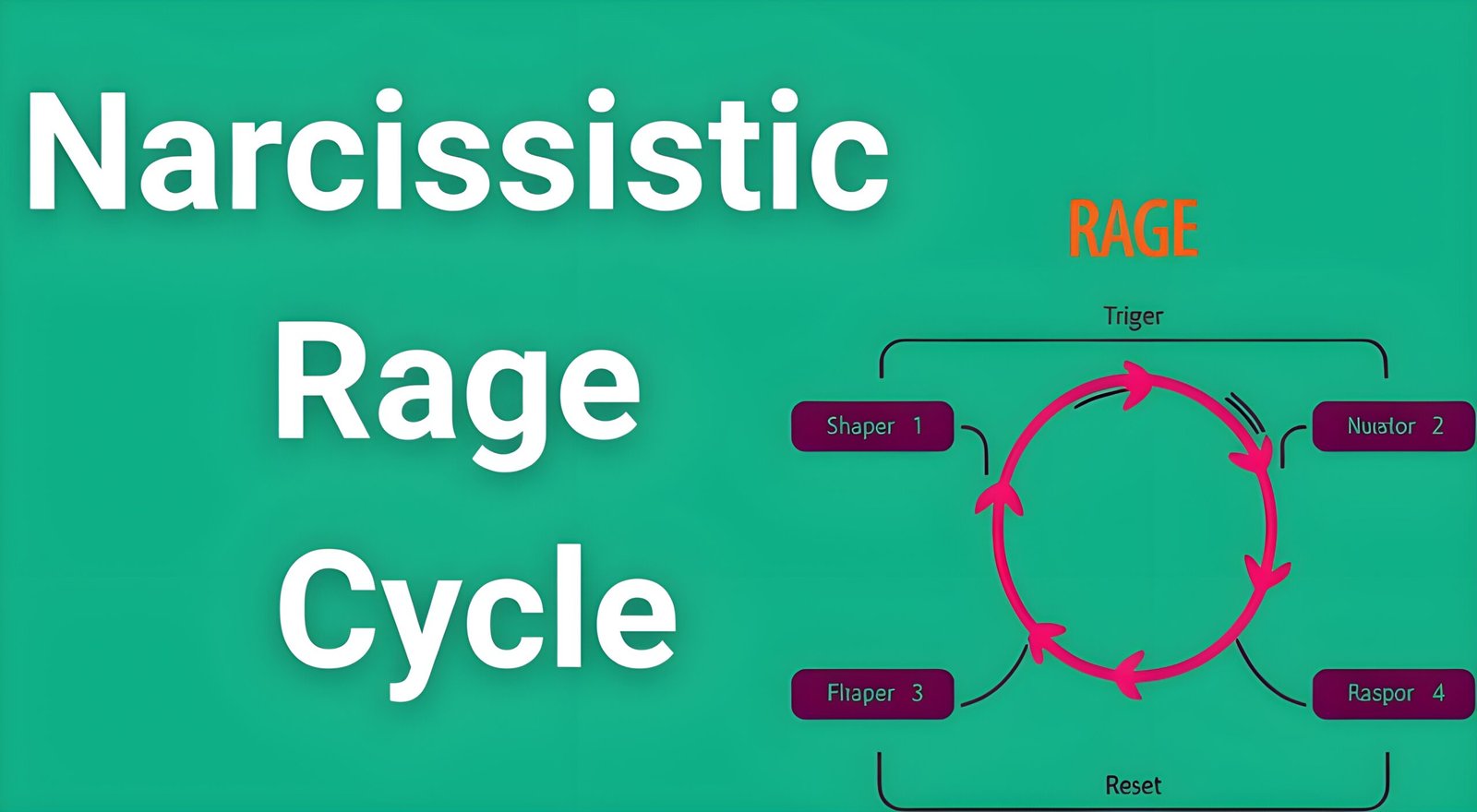Are narcissists psychopaths? This complex question has puzzled mental health professionals, survivors of abuse, and anyone trying to understand the dangerous personalities in their lives. After seven years of specialized work with survivors of narcissistic abuse, I can tell you the answer isn’t simple—but understanding the distinctions could save your sanity and potentially your life.
- Understanding the Dark Triad: When Personality Disorders Collide
- Are Narcissists Psychopaths? The Clinical Reality
- Which is Worse: Psychopath or Narcissist?
- Are Narcissists Psychopaths in Relationships?
- What Are the Traits of a Narcissistic Psychopath?
- Narcissistic Psychopath Examples: Real-World Recognition
- Narcissist vs Psychopath vs Sociopath: Understanding the Spectrum
- Narcissistic Psychopath Test: Recognition and Assessment
- How to Deal with a Narcissistic Psychopath
- The Neurological Basis of Narcissistic Psychopathy
- Protecting Society: Recognition and Prevention
- Frequently Asked Questions on Are Narcissists Psychopaths
- Conclusion: Understanding the Darkness to Find the Light
The confusion is understandable. Both narcissists and psychopaths display manipulative behaviors, lack genuine empathy, and can devastate the lives of those around them. However, these are distinct personality disorders with different motivations, behaviors, and levels of danger. Some individuals may exhibit traits of both conditions—creating what experts call malignant narcissism or narcissistic psychopathy.
This comprehensive guide will unravel the complex relationship between these dark personality disorders, help you identify the warning signs, and provide crucial strategies for protection and healing.
Understanding the Dark Triad: When Personality Disorders Collide
Before exploring whether narcissists are psychopaths, it’s essential to understand how these disorders fit within the broader category of Cluster B personality disorders. Mental health professionals classify these conditions based on shared characteristics of dramatic, emotional, and erratic behaviors that create chaos in relationships and social interactions.
The Dark Triad of personality traits includes narcissism with its grandiose self-perception and desperate need for admiration, psychopathy characterized by lack of empathy and antisocial behavior, and Machiavellianism featuring manipulative and exploitative tendencies. When these traits combine in a single individual, they create particularly dangerous personalities capable of extraordinary psychological damage.
Understanding this framework helps explain why some people seem to embody the worst aspects of multiple personality disorders. These individuals don’t simply display one set of problematic behaviors—they represent a convergence of multiple pathological patterns that amplify each other’s destructive potential.
Are Narcissists Psychopaths? The Clinical Reality
Are narcissists psychopaths? The clinical answer reveals a fascinating one-way relationship: not all narcissists are psychopaths, but virtually all psychopaths exhibit significant narcissistic traits. This overlap creates substantial confusion while maintaining distinct diagnostic criteria that mental health professionals use to differentiate between these disorders.
According to the Society for the Scientific Study of Psychopathy, narcissism represents an interpersonal symptom of psychopathy. This means that grandiose self-perception, exploitation of others, and lack of empathy—hallmarks of narcissistic personality disorder—are also core features of psychopathic personalities.
However, psychopathy encompasses additional antisocial behaviors, criminal tendencies, and emotional deficits that extend far beyond narcissistic presentations.
The distinction becomes clearer when examining motivations and emotional capacities. Narcissistic Personality Disorder involves a grandiose but fragile self-image that requires constant external validation. These individuals desperately need admiration and recognition, creating emotional volatility when their inflated self-perception is threatened. Despite their lack of empathy, narcissists retain some capacity for emotional attachment, albeit shallow and self-serving.
Psychopathy, in contrast, represents a more profound emotional deficit. Psychopaths possess genuine lack of empathy and emotional connection, displaying antisocial behavior without regard for social norms or consequences. Their self-confidence remains stable and independent of external validation, creating a chilling emotional flatness that allows for predatory behavior without remorse or guilt.
The key difference lies in emotional neediness versus emotional emptiness. Narcissists are fundamentally needy individuals who manipulate to fill an emotional void, while psychopaths are emotionally empty individuals who manipulate simply because they can, often for material gain or entertainment.
Which is Worse: Psychopath or Narcissist?
Which is worse psychopath or narcissist? This question reflects the devastating impact both disorders can have on victims, but the answer depends on context, specific manifestations, and the nature of the relationship involved.
Psychopaths are generally considered more dangerous due to their complete lack of conscience and emotional connection. They view others as objects to be exploited rather than human beings deserving consideration.
This perspective enables them to commit acts of extreme cruelty without experiencing guilt, remorse, or emotional cost. Their predatory nature, combined with often superior intelligence and charm, makes them capable of extraordinary manipulation and harm.
The emotional stability that characterizes psychopathy actually increases their danger. Unlike narcissists who give themselves away through emotional outbursts and reactive behavior, psychopaths maintain calculated control over their actions. They can sustain long-term deceptive relationships, carefully planning exploitation while maintaining convincing facades of normalcy or even exceptional character.
However, narcissists create their own form of devastating damage through persistent emotional torture and psychological manipulation. Their emotional volatility creates unpredictable environments where victims walk on eggshells, never knowing what might trigger explosive rage or cruel punishment. The alternating cycles of idealization and devaluation create trauma bonds that can be extraordinarily difficult to break.
In relationships, narcissists may actually cause more sustained psychological damage than psychopaths. Their need for emotional supply means they invest more energy in destroying their victims’ sense of reality and self-worth. They systematically undermine confidence, isolate victims from support systems, and create complex PTSD through prolonged exposure to emotional abuse and gaslighting.
The most dangerous scenario emerges when individuals exhibit traits of both disorders. Narcissistic psychopaths or those with malignant narcissism combine the emotional volatility and need for control characteristic of narcissism with the calculated cruelty and lack of conscience typical of psychopathy.
Are Narcissists Psychopaths in Relationships?
Are narcissists psychopaths in relationships? Understanding how these disorders manifest in intimate partnerships reveals crucial differences that can help identify the type of dangerous personality you’re dealing with and determine appropriate protective strategies.
Narcissistic relationship patterns follow predictable cycles that begin with intense love-bombing designed to secure emotional attachment. During this phase, narcissists shower targets with excessive attention, gifts, and declarations of profound love.
They create artificial senses of special connection, claiming soulmate bonds and perfect compatibility while rapidly escalating commitment and intimacy. This intensive focus feels overwhelming but intoxicating, particularly to individuals who have experienced emotional neglect or validation deficits in the past.
Once the narcissist feels secure in their partner’s attachment, they shift to systematic devaluation designed to establish control and superiority. This transition often occurs so gradually that victims don’t recognize the change until they’re deeply entangled.
Criticism begins subtly, disguised as “constructive feedback” or concern for the partner’s wellbeing. Emotional withdrawal follows, with affection becoming conditional on compliance and validation of the narcissist’s superiority.
The discard phase represents the ultimate narcissistic cruelty, often occurring when the victim is most vulnerable or when the narcissist has secured new sources of validation. This abandonment typically involves blame-shifting that portrays the victim as responsible for the relationship’s failure, followed by hoovering attempts to regain control when the narcissist’s new supply proves insufficient.
Psychopathic relationship patterns operate on entirely different principles focused on strategic exploitation rather than emotional manipulation. Psychopaths approach relationships as predatory enterprises, carefully selecting vulnerable targets and rapidly assessing weaknesses that can be exploited for financial, sexual, or social gain.
Their manipulation lacks the emotional investment characteristic of narcissistic abuse, creating a chilling detachment that can be even more devastating for victims who mistake this coldness for strength or emotional stability.
The absence of genuine emotional attachment means psychopaths can maintain multiple simultaneous relationships without experiencing jealousy, possessiveness, or emotional conflict. They calculate responses for maximum effect rather than reacting from wounded ego or emotional triggers. When relationships no longer serve their purposes, psychopaths abandon victims with cruel efficiency, leaving no emotional residue or lingering attachment.
Narcissistic psychopaths represent the most dangerous combination, blending the emotional manipulation and need for control characteristic of narcissism with the calculated cruelty and predatory behavior of psychopathy. These individuals can sustain longer relationships due to their emotional investment while inflicting both systematic psychological abuse and calculated exploitation.
What Are the Traits of a Narcissistic Psychopath?
What are the traits of a narcissistic psychopath? These individuals represent a particularly dangerous fusion requiring immediate recognition and protective action. Understanding their characteristics can literally save lives and prevent years of psychological devastation.
Malignant narcissism: Combines grandiose self-perception with genuine antisocial behavior, creating individuals who believe in their superiority while feeling entitled to exploit and manipulate others without consequence.
They view people as inferior objects existing solely for personal use, lacking moral restraints despite understanding social norms and expectations. Most disturbingly, many display sadistic enjoyment of others’ pain and suffering, taking pleasure in the psychological destruction they create.
These individuals excel at emotional manipulation with calculated cruelty, using emotions as weapons rather than genuine expressions of feeling. They deliberately inflict psychological pain for control and entertainment, engaging in psychological torture disguised as normal relationship dynamics. Their systematic destruction of victims’ self-worth and reality often includes sadistic enjoyment of the confusion and emotional breakdown they create.
The combination of superficial charm with hidden predatory agendas makes narcissistic psychopaths particularly dangerous. They possess exceptional ability to read and manipulate others while presenting false personas designed to gain trust and access to victims.
Their charisma serves exploitation rather than genuine connection, enabling them to maintain multiple deceptive relationships simultaneously while appearing charming and successful to outside observers.
In professional settings, workplace psychopathy combined with narcissistic grandiosity creates ruthlessly ambitious individuals with complete disregard for colleagues’ wellbeing. They exploit position and power for personal gratification while using charm and manipulation to advance their careers regardless of the cost to others.
Corporate psychopathy with grandiose self-promotion often enables these individuals to reach positions of significant authority where their destructive potential multiplies exponentially.
Family dynamics reveal some of the most devastating manifestations of narcissistic psychopathy. Parental alienation and child manipulation become weapons used against ex-partners, with children viewed as tools rather than vulnerable human beings deserving protection. These individuals create generational trauma through systematic abuse while maintaining public facades of concerned parenting or victimization by unreasonable ex-spouses.
Narcissistic Psychopath Examples: Real-World Recognition
Narcissistic psychopath examples illustrate how these dangerous combinations manifest in everyday life, helping readers recognize similar patterns in their own experiences.
The corporate executive who embezzles company funds while maintaining a grandiose lifestyle represents a classic example. This individual uses charm and manipulation to rise through corporate ranks, destroying colleagues’ careers for personal advancement while showing no remorse for employees harmed by their decisions.
They maintain public images of success and leadership while privately engaging in criminal behavior, often believing their superior status exempts them from consequences.
In romantic relationships, the narcissistic psychopath might use dating platforms to target financially successful individuals while maintaining multiple relationships for various forms of exploitation.
They display grandiose behavior and desperate need for admiration while systematically draining partners’ emotional and financial resources. Unlike pure psychopaths who abandon victims efficiently, narcissistic psychopaths often maintain contact to continue psychological torture, deriving satisfaction from their victims’ ongoing pain.
The family destroyer represents perhaps the most devastating example, using children as weapons against ex-spouses while creating elaborate victim narratives. These individuals combine emotional manipulation with calculated cruelty, engaging in parental alienation while maintaining public facades of concerned parenting.
They use court systems and authorities for continued abuse, showing no genuine concern for children’s wellbeing despite grandiose claims about their parenting abilities.
Social media provides new venues for narcissistic psychopathic behavior, with individuals creating elaborate online personas while engaging in systematic harassment and reputation destruction. They maintain public images of success and victimization while privately orchestrating smear campaigns and psychological warfare against multiple targets, often showing sadistic enjoyment of the chaos they create.
Narcissist vs Psychopath vs Sociopath: Understanding the Spectrum
Narcissist vs psychopath vs sociopath represents the most common confusion in understanding personality disorders. Each disorder exists on a spectrum of antisocial personality traits, but they differ significantly in emotional capacity, behavioral patterns, and relationship styles.
Narcissistic Personality Disorder involves fragile self-esteem requiring constant validation despite outward appearances of confidence and superiority. These individuals experience emotional reactivity and volatility, particularly when their grandiose self-image is threatened.
They retain some capacity for emotional attachment, though these connections remain shallow and self-serving. Their manipulation primarily serves ego enhancement and validation-seeking rather than material gain.
Psychopathy represents a more severe form of emotional deficit characterized by genuine lack of empathy and stable self-confidence independent of others’ opinions. These individuals display emotional flatness and absence of guilt or remorse, enabling them to engage in criminal versatility and predatory exploitation without psychological cost. Their relationships focus entirely on resource extraction or personal pleasure, with no genuine emotional investment in others’ wellbeing.
Sociopathy, also related to Antisocial Personality Disorder, involves some capacity for emotional attachment to specific individuals despite broader antisocial behavior.
Sociopaths tend toward emotional instability and impulsivity, displaying hot-headed reactions rather than the calculated responses characteristic of psychopaths. They may experience guilt in limited circumstances, particularly regarding harm to individuals within their small circle of attachment.
The key distinctions involve empathy levels, emotional stability, and relationship capacity. Narcissists display limited empathy focused primarily on themselves but retain emotional investment in relationships.
Psychopaths possess no genuine empathy and maintain no real emotional investment in others. Sociopaths show selective empathy for chosen individuals while remaining largely antisocial toward broader society.
Understanding these differences helps predict behavior patterns and assess danger levels. Narcissists create emotional and psychological damage through manipulation and abuse. Psychopaths represent the highest risk for all forms of harm due to their complete lack of conscience. Sociopaths fall somewhere between, capable of unpredictable violence and exploitation but potentially capable of loyalty within limited relationships.
Narcissistic Psychopath Test: Recognition and Assessment
Narcissistic psychopath test tools help identify these dangerous combinations, though professional diagnosis requires clinical evaluation. Recognizing warning signs can provide crucial protection before devastating damage occurs.
Key assessment areas include grandiosity combined with antisocial behavior, examining whether someone believes in their superiority while willingly harming others to achieve goals. This might manifest as entitlement to exploit and manipulate without consequence, viewing others as inferior objects for personal use, or showing absence of moral restraints despite understanding social expectations.
Emotional manipulation with calculated cruelty represents another crucial indicator. This involves using emotions as weapons rather than genuine expressions, deliberately inflicting psychological pain for control, engaging in psychological torture disguised as normal interactions, and showing enjoyment of others’ confusion and emotional breakdown.
Superficial charm masking predatory intentions requires careful observation over time. These individuals excel at reading and manipulating others while presenting false personas designed to gain trust. Their charisma serves exploitation rather than genuine connection, and they often maintain multiple deceptive relationships simultaneously.
Professional assessment considers additional factors including antisocial personality traits, criminal thinking patterns, and empathy deficits. Mental health professionals use structured interviews, psychological testing, and behavioral observation to distinguish between different personality disorders and assess the presence of multiple conditions.
How to Deal with a Narcissistic Psychopath
How to deal with a narcissistic psychopath requires understanding that traditional relationship strategies won’t work with these individuals. Their combination of emotional manipulation and calculated cruelty demands specialized protective approaches focused on safety rather than reconciliation.
Immediate safety assessment becomes the primary concern when dealing with narcissistic psychopaths. Their unpredictable combination of emotional volatility and calculated cruelty can escalate quickly, particularly when they feel their control or image is threatened. Document all concerning behaviors, threats, and incidents while maintaining detailed records of interactions that might become legally relevant.
No contact represents the gold standard for protection when possible, but many situations require modified approaches due to children, work relationships, or legal obligations. In these cases, gray rock method involves becoming as uninteresting and unresponsive as possible, providing minimal emotional reactions to their provocations while sharing no personal information that could be weaponized.
Professional support becomes essential when dealing with narcissistic psychopaths due to their sophisticated manipulation tactics and psychological warfare capabilities. Trauma-informed therapists who understand personality disorders can provide crucial guidance for healing and protection. Legal consultation may be necessary to address harassment, stalking, financial exploitation, or threats.
Safety planning involves practical steps including changing routines, securing financial accounts, informing trusted contacts about the situation, and developing emergency protocols. Technology safety includes changing passwords, securing social media accounts, and being aware of potential surveillance or tracking attempts.
Support system strengthening helps counteract the isolation tactics commonly used by narcissistic psychopaths. They systematically work to destroy their victims’ relationships and credibility, making outside support crucial for maintaining perspective and emotional stability. Connect with other survivors, join support groups, and maintain relationships with people who understand the dynamics involved.
Boundary enforcement requires understanding that narcissistic psychopaths will test every limit while using boundary-setting against victims as evidence of unreasonableness or abuse. Document boundary violations while maintaining consistency in enforcement, understanding that escalation often occurs when boundaries are first implemented.
The Neurological Basis of Narcissistic Psychopathy
Understanding the brain science behind narcissistic psychopathy helps explain why these individuals behave as they do and why traditional interventions often fail. Research reveals specific neurological patterns that distinguish these personalities from normal emotional and moral development.
Prefrontal cortex abnormalities affect areas responsible for empathy, moral reasoning, and impulse control. These regions show reduced activity in individuals with psychopathic traits, particularly areas involved in emotional processing and perspective-taking. The combination with narcissistic traits creates individuals who can intellectually understand social expectations while lacking genuine emotional connection to others’ experiences.
Amygdala dysfunction affects fear processing and emotional learning, contributing to the fearlessness and risk-taking behavior characteristic of psychopathy. When combined with narcissistic traits, this creates individuals who feel entitled to take risks with others’ safety and wellbeing while remaining largely unaffected by potential consequences.
Neurotransmitter imbalances particularly involving serotonin and dopamine systems affect mood regulation, empathy, and reward processing. These biological factors contribute to the emotional flatness of psychopathy while potentially intensifying the validation-seeking behaviors characteristic of narcissism.
Understanding these neurological factors helps explain why narcissistic psychopaths rarely respond to traditional therapy or intervention approaches. Their brains literally process social and emotional information differently, making genuine empathy development extremely unlikely without intensive, specialized treatment that most individuals with these disorders reject.
Protecting Society: Recognition and Prevention
The impact of narcissistic psychopaths extends far beyond individual relationships to affect families, workplaces, and entire communities. Recognition and prevention efforts require public education about these dangerous personality combinations and their sophisticated manipulation tactics.
Institutional safeguards in corporations, schools, healthcare systems, and other organizations can help identify and limit the damage caused by individuals with these personality disorders. Background checks, reference verification, and careful observation during probationary periods can help identify concerning patterns before positions of trust are granted.
Public awareness campaigns about psychological manipulation, emotional abuse, and antisocial behavior help potential victims recognize warning signs before becoming entangled in destructive relationships.
Education about love-bombing, gaslighting, and other manipulation tactics empowers individuals to protect themselves and their loved ones.
Legal system improvements including better training for judges, attorneys, and law enforcement about personality disorders can help prevent the continued victimization that often occurs when narcissistic psychopaths use legal systems to continue their abuse. Understanding their manipulation tactics and victim-blaming strategies helps legal professionals make more informed decisions.
Research and treatment development continues to explore potential interventions for these severe personality disorders, though prospects remain limited due to the individuals’ lack of motivation for genuine change and their sophisticated ability to manipulate therapeutic relationships.
Frequently Asked Questions on Are Narcissists Psychopaths
No, narcissists and psychopaths are not the same, though they share some overlapping traits. While both lack empathy and exploit others, psychopaths are characterized by a complete absence of conscience and remorse, while narcissists may experience some guilt and are primarily driven by maintaining their self-image. According to research, psychopaths are typically narcissists, but not all narcissists are psychopaths.
The main difference lies in motivation and emotional capacity. Narcissists are driven by a desperate need for admiration and validation, while psychopaths are motivated by power and control without emotional attachment. Narcissists may experience some remorse and their abuse is typically verbal/emotional, whereas psychopaths feel no genuine remorse and are more likely to engage in physical violence or criminal behavior.
Yes, “narcissistic psychopaths” exist and represent a particularly dangerous combination. Research shows that narcissism is considered an interpersonal symptom of psychopathy. When these traits combine, individuals display grandiosity and need for admiration (narcissistic traits) along with complete lack of conscience and potential for violence (psychopathic traits), making them extremely manipulative and harmfu
Psychopaths are generally considered more dangerous due to their complete lack of conscience, higher propensity for violence, and criminal behavior. They pose a greater threat of physical harm and extreme manipulation. Narcissists primarily cause emotional and psychological damage through relationships, though when narcissistic and psychopathic traits combine, the potential for harm becomes significantly more severe.
Research suggests both conditions may share core neurological features, particularly in brain areas responsible for empathy, emotion regulation, and decision-making. Studies show abnormalities in the amygdala (fear processing, empathy) and orbital frontal cortex (decision-making) in both groups. However, psychopaths typically show more severe brain pathology, especially in areas that process punishment and moral reasoning, making treatment much more challenging.
Conclusion: Understanding the Darkness to Find the Light
Are narcissists psychopaths? The answer reveals a complex spectrum of personality disorders that can combine to create extraordinarily dangerous individuals capable of devastating psychological and sometimes physical harm. While not all narcissists are psychopaths, the overlap between these conditions creates some of the most challenging and destructive personalities encountered in human relationships.
Understanding these distinctions isn’t academic—it’s potentially life-saving knowledge that can help you recognize danger, protect yourself and your loved ones, and begin the healing process if you’ve already been victimized. Whether dealing with a narcissist’s emotional manipulation, a psychopath’s calculated cruelty, or the devastating combination found in narcissistic psychopaths, knowledge represents your first line of defense.
The most important insight from this exploration is that you cannot change, fix, or heal these individuals through love, understanding, or therapy. Their personality disorders represent fundamental deficits in empathy, conscience, and emotional connection that resist traditional intervention approaches. Your energy is better invested in protecting yourself, healing from any damage already sustained, and building relationships with emotionally healthy individuals capable of genuine connection and mutual respect.
Recovery from involvement with narcissistic psychopaths requires professional support, patience with yourself, and understanding that the confusion and trauma you experienced were normal responses to abnormal treatment. These individuals are skilled at making their victims question reality, doubt their own perceptions, and accept responsibility for abuse they didn’t cause.
Your healing journey begins with education, continues with strong boundaries and support systems, and flourishes when you reconnect with your own worth and capacity for healthy relationships. You deserve connections built on mutual respect, genuine empathy, and authentic care—qualities that narcissistic psychopaths simply cannot provide.
Remember that recognizing these personality disorders isn’t about diagnosing others but about protecting yourself from psychological harm and building the awareness necessary for safe, fulfilling relationships. Trust your instincts, seek support when needed, and never forget that their inability to love genuinely reflects their limitations, not your worth.






